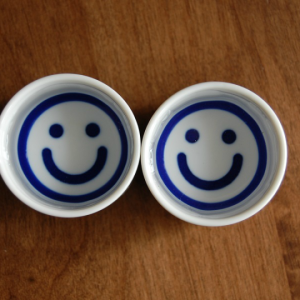
As sake grows in popularity around the world, sake education programs, some offering certifications to curriculum graduates, have proliferated in step.
That’s not to say these programs are interchangeable, though. For the sake enthusiast aching to become a true blue sake scholar, it’s important to assess the level of knowledge required and what the course focuses on when choosing their sake school. It’s also important to think about scheduling, language offerings and pricing.
*Due to the Covid-19 pandemic, many of these courses are being held online via Zoom with or without sake samples. Please visit the corresponding websites for the most up-to-date information.
Certified Sake Professional CSP and Advanced Sake Professional ASP
John Gauntner is recognized as the world’s leading non-Japanese sake expert. He’s a prolific sake author, but is most respected for his 3-day in depth introduction to sake production and the industry, the Certified Sake Professional (CSP) course. And for many passionate about sake, it’s the default first step to sake mastery.
Generally, the course is held in Japan and in certain US cities. It consists of three days of lectures with tastings representing important styles, categories and regionality in sake. The course is around US$1000 not including travel or accommodation, but since the pandemic, Gauntner has offered a live online format with five scheduled sessions for $375. Unfortunately, sake samples are not available for the online course, but it does provide a certification at the end of the curriculum that should be immensely useful for those looking to get into the industry.
Overall, the CSP is a great course for beginners, but the Advanced Sake Professional (ASP) course significantly ups the ante. Much more difficult and including a trip to breweries in Japan with John as host and translator, it’s perfect for the eager student ready to tackle sake head on and experience sake brewing in person. It’s also a wonderful way to visit Japan! (Unfortunately, this course is currently on hiatus due to the pandemic).
SSI International Kikisake-shi
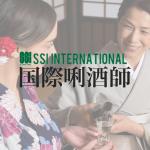
A great option for beginners who work in restaurants is the Sake Service Institiute’s (SSI) Sake Sommelier correspondence course. It’s meant for sommeliers representing sake in export markets around the world. The course takes place over three months, with exams and tasting notes emailed to Japan, where they are graded and returned a few weeks later. Upon completion, students achieve the title of International Kikisake-shi. The course costs 60,000 yen, or about US$550.
With open book exams, passing the course is simple and students can find unique insights into food pairing and Japanese culture here. On the other hand, participants must source their own sake samples; something to consider for those living in more sake-deprived regions.
Sake Adviser by Sake School of America
The Sake Adviser course is another good option for newbies entering the sake scene. It’s open to those in the sake trade and casual enthusiasts alike. The 2-day class provides lectures, sake tasting and group discussion with fellow students. Over a dozen sake styles are explored and the theory focus is on sake history, key ingredients, sake classification and sake tasting techniques. The course costs $475 and is held in Little Tokyo, LA as well as Secaucus, NJ.
The Sake School of America also presents classes and exams for the Society of Wine Educators, and numerous other certifications across sake, shochu and other beverages.
Sake Sommelier Academy by the Sake Sommelier Association
The Sake Sommelier Academy (SSA) has been active in sake education for over 20 years and has trained over 2000 Certified Sake Sommeliers. Fashioned similarly to the Court of Master Sommeliers, these courses are offered from Introductory and Certified to Advanced and Master levels. The company offering the course is based in London, but it’s available in many countries around the world through partner schools and instructors. One major perk of the course is that it’s offered in a number of languages to make it accessible to a diverse array of students.
SSA focuses on high level certification with the Advanced Sake Sommelier course taking place in Japan, similar to John Gauntner’s ASP. The Sake Sommelier Association is also the only company to offer a Master level sake course that requires previous training. This high level course teaches expert-level skills such as sake serving techniques, etiquette in a restaurant setting, and the art of buying and selling sake and offers 60 sakes for tasting during the intensive course. For information on pricing, fill out the inquiry form on their website.
Wine Spirit and Education Trust
Founded in 1969, the WSET is the leading educational organization providing education in wine and spirits around the world through Approved Program Providers (APP). They have in recent years expanded their curriculum to include an introductory Level 1 Award in sake as well as a more intensive Level 3 certificate. Level 3 is a highly technical course developed by Natsuki Kikuya and Antony Moss MW (certified Master of Wine), with a technical edit by the National Research Institute of Brewing (NRIB).
The courses are independent from one another, so ambitious candidates are welcome to jump straight to Level 3. Pricing for Level 1 and 3 depend on the APP and location, but are generally around US$300 for Level 1 and US$1000 for Level 3. Level 1 is a 6 hour introductory course with theory and tasting samples. Level 3 administers 16 hours of guided instruction, with over 30 sake samples and a required 24 hours of home study. The Level 1 exam is multiple choice and the Level 3 exam contains multiple choice, short answer questions and two blind tasting samples.
Japan Sommelier Association (JSA) Sake Diploma
The J.S.A. Sake Diploma presents a notoriously challenging curriculum. This course is suited for experienced sake specialists including distributors, retailers, sommeliers and educators. The course includes information on regions, rice growing statistics, toji guilds, production processes and more. The program launched in 2018 and is a self study course with no in-person instruction. Purchasing a seat at the exam for around US$250 will net applicants a copy of the JSA textbook. The exam is administered once a year and exam sites are located in Japan, China, Taiwan, the US and Germany.
Sake Scholar Course by Michael Tremblay
Michael Tremblay is a certified Sake Samurai, as well as a sommelier, judge and regional expert in the sake industry. His course came out only two years ago and is the most comprehensive and demanding program regarding regionality, rice varieties and yeast strains. He has conducted a prodigious amount of research in the unknowns of sake and its connection to the concept of terroir. To apply for this course, proof of sake experience is necessary through a questionnaire that asks for previous work history and certifications. Michael decides whether or not a candidate is ready to sit the class. It’s generally held in person, but has been held online for the past year via Zoom lectures. Sake samples are suggested and must be obtained by the student. The cost for the current online course is CA$750 (approx. US$600 at time of writing).
With so many educational options available, focusing on the level of knowledge the course provides is key and making a decision on what program works best based on desired career path is definitely advisable.
That said, with each of these courses providing a recognized certification on completion, they are all a fantastic start towards a career working with, or at least around, sake. One of these certifications may well open doors in the industry, but regardless of the end goal, they’re each an informative journey in their own right… and a great excuse to sample some interesting sake, too!
*Top image: Green Chameleon on Unsplash
*We are sending you monthly updates and the information. Register here.


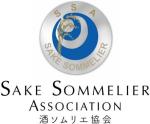
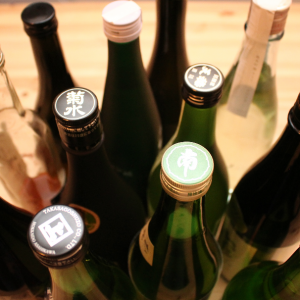
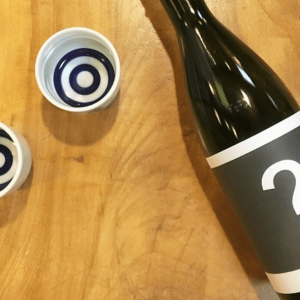

Comments